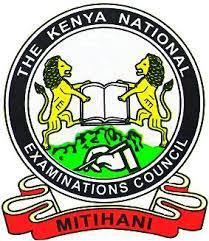
SECTION A (32 marks)
Answer ALL the questions in this section.
A. List three types of minutes that may be written in a meeting. (3 marks)
JL State four factors which may cause inaccurate interpretation of a message. (4 marks)
Ji. List three roles of inter-departmental communication in an organization. (3 marks)
^4. State three instances when electronic mail may be used to pass information. (3 marks)
Outline three reasons for conducting exit interviews. (3 marks)
cAx State three advantages of using several data collection methods when writing a report. (3 marks)
List four uses of visual aids when delivering a speech. (4 marks)
—8. State three reasons why it is important for the listener to maintain eye contact with the speaker. (3 marks)
Outline three instances when a map may be used in company reports. (3 marks)
<T0. List three ways in which information communication technology increases effectiveness in communication. (3 marks)
SECTION B (68 marks)
Answer ALL the questions in this section.
AA. The proprietor of Mali Hotel Limited has noted that the firm has been experiencing booking cancellations over the last six months. As the Operations Officer, you have been asked to investigate the matter and write a report. Assume that you have completed the investigation and write the report. x (16 marks)
12. 4a) Tech Publishers recently received a complaint letter from City High School for failing to deliver text books on time. As the Public Relations Officer of Tech Publishers, write an apology letter. (12 marks)
4b) Peak Limited is intending to hold a meeting for all its junior staff in two weeks’ time. Outline four activities that a secretary may undertake to make the meeting successful.
(6 marks)
Jamii Welfare Group will be celebrating its 10* anniversary in 9 months’ time. As the group’s chairperson, prepare the speech you will deliver during the occasion. (10 marks)
Describe four organizational barriers that may hinder effective flow of information. (6 marks)
14. Read the passage below and then answer the questions that follow.
Fraud is the act of deceiving a person or an organization with the intention of getting financial or personal gain. It has become a very common occurrence in the world today. According to a survey conducted on online payments, millions of people are defrauded each year. Online payments are fast gaining acceptance due to speedy processing of credit cards, easy access of •< payment portals and immediate notifications of transactions among others. Online payments occur throughout and the fund transfer happens on immediate basis
With increased access to the Internet in the world today, more people than before are using computers These computers can be generally classified into two categories: private and public.
Private computers are those that are used at home and in offices. Public computers are found in cyber cafes, coffee shops and other public places. In addition, wireless networks are also everywhere; many of them free or available for a small fee. This availability of computers and networks makes it very easy to purchase online, check mail, chat with friends or even balance cheque books from anywhere. Using public computers to make online transactions can pose dangers. Thus caution is required since it is possible for someone to access vital information illegally. This is because one may not know what software or hardware has been installed in the
public computers. Some software, for example, can capture one’s username and password or
other account information.
Regardless of the dangers posed by use of computers for online activities, various measures could be instituted to ensure fraud-free online transactions. 9ne- such-measure-ts- shunning public places and networks when making any nnlin^ tr^nsartinng Th<s is because there are chances that
‘A
someone may see personal information displayed on the screen_Wofse-&4rU-, an intruder cangrab sensitive information sent over thewireless network. 31
Furthermore, there is-nced-te desist^rom the use of public computers as-such computers may have programs that can copy keystrokes, ao weH as.othor software that can capture one’s sensitive information^ Individuals shouldj^thefe&re^^trive Jo make internet transactions using private computers and networks.
Another measure to combat fraud-is-tbe use of credit cards instead of debit cardsJh+s-ts because debit transactions are.xiskier than credit transactions. In debit transactions. crimijials_ca» easily drain one’s hank account, making it possible tor them to spend the money quickly and-thus thwarting any ciffnrts to unravgllhn theft-in time-Thin is unlike in .a.credit card theft wlutdi I.. dija3trons-3KTBM^tl credit-card-company can help to dig into the matter. Jn-addition^ if onejas regggyattons about-giving nttf-nnr’s riredrt card- numben-onlin^ then it in nrh’iinhlr tn inf tu; rd
party-sefyiees sughasAl Pena th us.reducing chfljn^LQf^wghjjnlinc thrft .
7 *
7 *
On the nt her haiuliLis necessary that one’s computers are_seciirej.y updated-with antivirus,.. antispvware and firewall software programs sm.-e this could also serve as deterrents to online fraud«Moreover, keeping accurate records which reflect details of online jr_ansactipn.scan.be of value in combating online vtee Sitfth_rec.ords will serve as evidencer-of one’s, purchases if problems occur. Though it may be a requirement at times that one uses personal data such as date of birth and ID number, it should be noted that most legitimate websites will not ask one to give out personal information. By intercepting such information, criminals can have enough data to
apply for new credit cards in the victim’s name consequently being able to defraud by carrying out online transactions without being detected. Therefore, one should always be cautious not to reveal such crucial details when carrying out online transactions.
Adapted from THE ACCOUNTANT August-September 20 i 4.
‘-Ta) State the meaning of the following words and phrases as used in the passage:
(i) classified;
(ii) instituted,
(iii) desist from;
(iv) combat,
(v) of value;
(vi) cautious. (6 marks)
<Tfi) In about 150 words, and according to the passage, explain the various measures which could be instituted to ensure fraud-free online transactions.
